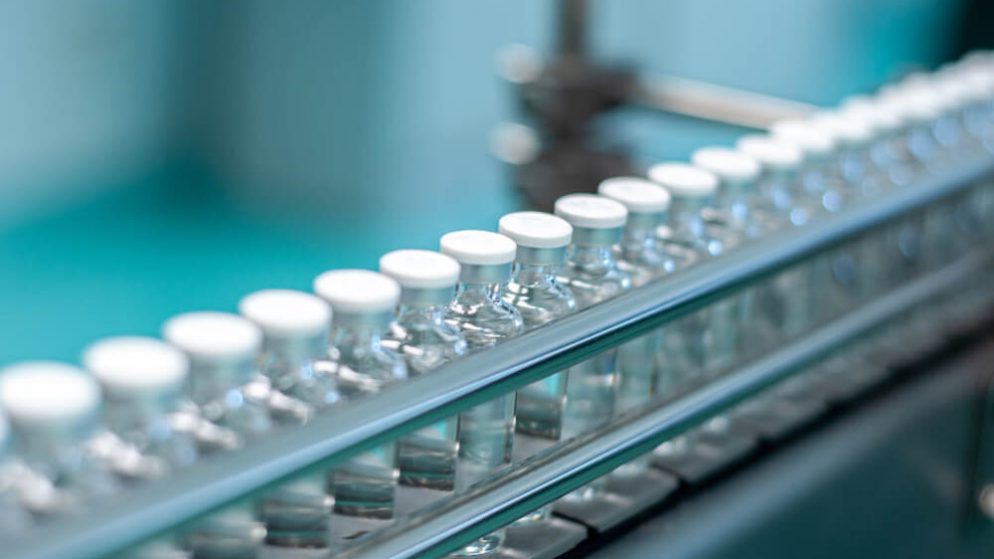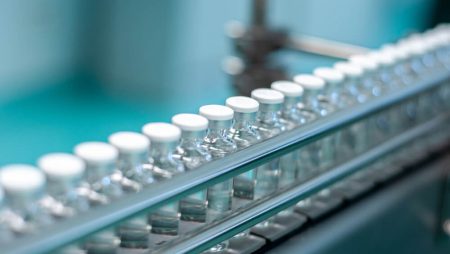



Get new exclusive access to healthcare business reports & breaking news




Eli Lilly and Company plans to invest over $1 billion to create a new manufacturing site, along with nearly 600 new jobs in Concord, North Carolina.
The brand-new facility will use the most recent technology to manufacture parenteral (injectable) products and devices and increase the company’s manufacturing capacity.
“Lilly is entering an exciting period of growth and we are committed to delivering innovative medicines to patients around the world,” said Edgardo Hernandez, senior vice president and president, Lilly Manufacturing Operations. “Expanding our manufacturing footprint in North Carolina enables us to continue to produce today’s medicines while providing additional capacity to manufacture the medicines of tomorrow. We are pleased to again partner with North Carolina to bring jobs to American workers and provide more medicines that patients need to address health challenges.”
Lilly chose to expand operations in Concord because of the manufacturing technology experience of the local labor force; its proximity to universities with strong science, technology, engineering, and math (STEM) programs; and its access to major transportation infrastructure.
Back in 2017, Eli Lilly and Company announced plans to invest $850 million in its U.S. operations in 2017. The company’s investments span facilities across its U.S. enterprise, including research laboratories, manufacturing sites, and general and administrative areas. The investments were being driven by demand for Lilly products, as well as its robust pipeline of potential medicines in development targeting cancer, pain, diabetes, and other unmet medical needs.
In 2020, Lilly announced a $470 million investment in North Carolina’s Research Triangle Park. In conjunction with this site, the new facility in Concord will allow the company to strengthen relationships with local governments and universities and diversify its growing presence in the state.
The company has been very involved in fighting the current pandemic. Back in 2020, Eli Lilly and Junshi Biosciences also made a deal to jointly develop therapeutic antibodies for the possible prevention and treatment of COVID-19. Multiple antibodies have been developed, with the best one to enter clinical testing in the coming months. The disease currently sweeping the globe is caused by the SARS-CoV-2 novel coronavirus.
“Since the outbreak of the novel coronavirus, we’ve been working around the clock to fight against the pandemic. Entering into this deal with Eli Lilly enables us to speed up the clinical development of Junshi SARS-CoV-2 antibodies on a global basis,” said Ning Li, Junshi Biosciences’ chief executive officer of commercialization.
Almost everything went online due to the COVID-19 pandemic, from remote collaboration with coworkers to ordering groceries and conducting online classes. But unlike other industries that have responded rapidly to COVID-19, clinical trials have been slower to adapt. One thing the pandemic has done, however, significantly catalyzes and accelerates the adoption of decentralized clinical trials (DCTs).
With COVID-19 making the operational feasibility of clinical trials more challenging, this breeds the new age of decentralized clinical trials (DCTs). Digital health technologies (DHTs), such as wearables, smart devices, environmental sensors, and low-risk, consumer-grade devices, are catalyzing the transition from centralized to remote settings in DCTs, with a remote-first paradigm. DHTs enable multi-site reporting of trial-related activities, communication, inclusion, diversity, consent, enrollment, and retention for a study.
Now, Lilly plans to create nearly 600 new jobs for highly skilled workers such as scientists, engineers, and manufacturing personnel, who will use advanced technology to produce life-changing treatments and devices to make life better for people around the world. In addition, an estimated 500 additional positions will be required while the facility is under construction.
“Lilly’s choice brings more good jobs to North Carolina from one of our most important industries,” said North Carolina Governor Roy Cooper. “North Carolina has become a premier hub for the world, thanks to our exceptional workforce and commitment to education.”
Over the last five years, Lilly has invested over $4 billion in global manufacturing, including more than $2 billion in the U.S. The company also today announced plans to invest $500 million in a new biopharmaceutical manufacturing facility in Limerick, Ireland. Lilly anticipates additional future investments in manufacturing to address growth expected from potential new medicines to treat diabetes, Alzheimer’s disease, cancer, and autoimmune conditions.
The investment in Concord is contingent upon the completion of the county and municipal government permitting and related approvals. Lilly partnered with several organizations throughout the project, including the Office of the Governor, the Department of Commerce, Cabarrus Economic Development Corporation, the City of Concord, Cabarrus County, the Economic Development Partnership of North Carolina, the North Carolina Biotechnology Center, Rowan Cabarrus Community College, and the North Carolina Community College System.
Lilly is a global health care leader that unites caring with discovery to create medicines that make life better for people around the world. We were founded more than a century ago by a man committed to creating high-quality medicines that meet real needs, and today we remain true to that mission in all our work. Across the globe, Lilly employees work to discover and bring life-changing medicines to those who need them, improve the understanding and management of disease, and give back to communities through philanthropy and volunteerism.